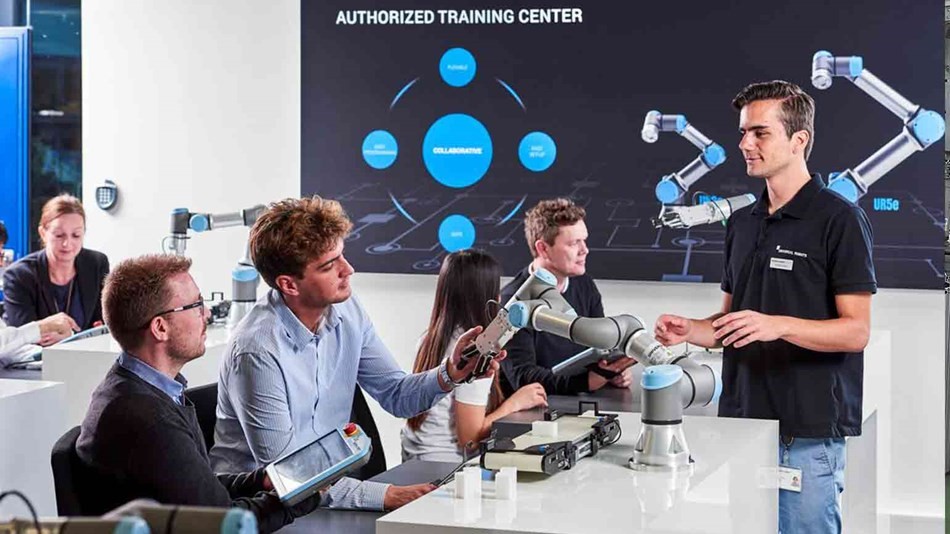Collaborative robot (cobot) leaders and practitioners connected online to share insights on future-proofing manufacturing in Asia-Pacific.
In a recent ‘live’ online interactive congress on cobots and their encompassing role in the future of manufacturing in Asia Pacific, cobot luminaries—Jürgen von Hollen, President of Universal Robots; James McKew, Regional Director (APAC) Universal Robots; and Dr Che Fai Yeong, Director of DF Automation and Robotics and Associate Professor at Universiti Teknologi Malaysia—shared industry insights and answered important questions from industry practitioners and attendees.
Offering visionary and practical insights on post-pandemic manufacturing, and how manufacturers in Asia-Pacific can be future-ready, the session was moderated by Dr Yeong, a name associated with robotics and inventions in Malaysia, and a winner of more than 100 awards nationally and internationally.
COVID-19 and challenges
The COVID-19 pandemic in 2020 has exacerbated existing challenges and exposed new vulnerabilities for manufacturers around the world.
The serious disruption to supply chains, sudden material shortages, and steep swings in demand has left manufacturers grappling with changes. Labor-intensive manufacturing has been hit painfully by the regional governments’ extended lockdowns and social distancing. But such measures present an opportunity for labor-centric manufacturers to rethink their operations, for ways to keep production going while adhering to regulatory measures without sacrificing cost efficiency, and to future-proof operations for more resilience.
“In Asia-Pacific, business owners and operators have to juggle costs, value creation, and profit. In some locales where real estate is costly, such as Singapore and other metropolitan cities, cobots can be a tremendous help in maximising floor space with human operators and cobots working in tandem to achieve the highest levels of production while adhering to physical distancing guidelines,” said the firm’s regional director.

Surmounting challenges with innovation
For many innovative applications throughout the world, cobots have been a suitable nimble tool, especially in emerging ASEAN markets where the adoption rates of cobots and other industrial robots have been steadily outpacing the established Western markets.
This is especially since cobots do not require professional engineers or software developers: anyone with an ability to operating a simple graphical tablet will be able to command and control such cobots after some basic training.
For example, cobots have found their way into medical applications because of the COVID-19 crisis, with applications such as swab testing, sterilization, and mobilized disinfection, including the disinfection of aircraft-seat arm rests. Said von Hollen: “In today’s transient and volatile world, it is no longer possible to readily or easily forecast forward trends. It is therefore critical for any company to be flexible and agile. Businesses and leaders have to leverage on the best available technologies, such as cobots, to empower innovative applications for businesses to adjust dynamically to situations and crises, and to adapt existing infrastructures to address organisational and customers’ needs.”
Mirroring this sentiment, Dr Yeong noted: “We foresee cobots to grow exponentially in the very near future in the ASEAN region, especially in the small and medium enterprise (SMEs) segment. COVID-19 has accelerated the adoption of cobots in many industries,” adding that easy-to-operate cobots from Universal Robots “can steer regional development and adoption to help businesses succeed against obsolescence.”
